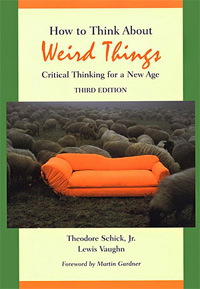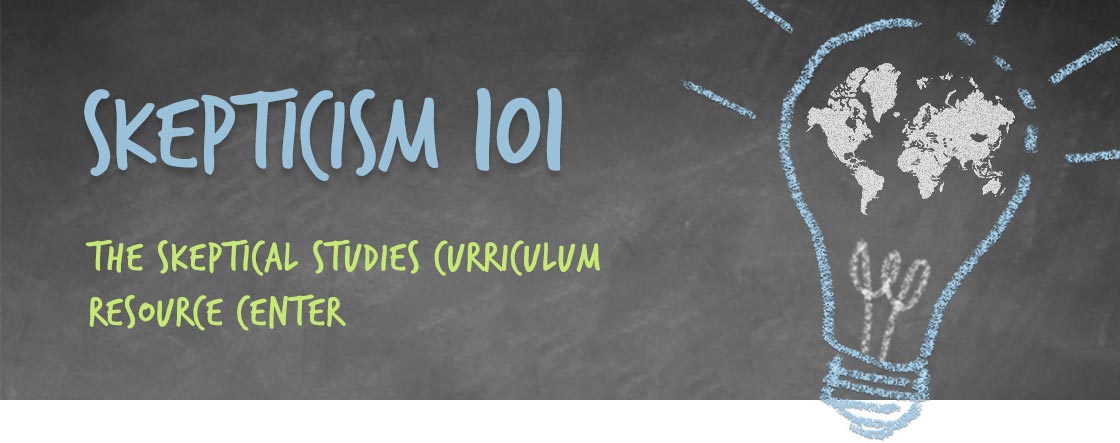You Are Browsing Resources
for the Academic Discipline of:
parapsychology
This book was required reading for the following courses: (1) “Science, Skepticism & Weird Behavior” taught by Bryan Lovelace, (2) “Skepticism & the Scientific Worldview” taught by Travis Knowles, (3) “Skepticism, Science & the Paranormal” taught by Martin Brigdstock, and (4) “The Scientific Method: Critical & Creative Thinking” taught by Stephen Sekula et al.

This brief text helps students to think critically, using examples from the weird claims and beliefs that abound in our culture to demonstrate the sound evaluation of any claim. It explains step-by-step how to sort through reasons, evaluate evidence, and tell when a claim (no matter how strange) is likely to be true. The emphasis is neither on debunking nor on advocating specific assertions, but on explaining principles of critical thinking that enable readers to evaluate claims for themselves. The authors focus on types of logical arguments and proofs, making How to Think about Weird Things a versatile supplement for logic, critical thinking, philosophy of science, or any other science appreciation courses.—Amazon
James Randi calls this textbook, “the most powerful, comprehensive, and readable collections of examples, explanations and caveats that I could have ever hoped for.” A library must!—Skeptic
BUY THIS BOOK
from Amazon
This course was taught at New York Medical College during the spring 2011 semester.
Excerpt from Syllabus
A paradox in modern society is that while society increasingly depends upon science, more and more members of that society are coming to accept various pseudoscientific and paranormal beliefs. Claims for all sorts of paranormal and pseudoscientific phenomena are widely treated in the media as if they were as real as, say, gravity. There is very little critical examination of these claims. Gullibility is the watchword. This course will examine a wide range of such beliefs and claims, as noted in the class calendar. One focus will be on the nature of the evidence for these beliefs. A second focus will be on the psychology of belief—what causes people to believe, often very strongly, in a claim of phenomenon that, the evidence shows, is false.
Course Objectives
There are several course objectives. At a general level, students should learn the characteristics of pseudoscientific claims and how to critically examine such claims. This will involve an understanding of basic logic and scientific methods, as well as some statistical reasoning. In addition, students should come away from the course knowing the cognitive factors that lead to acceptance of claims and ideas which the evidence shows are incorrect. At a more specific level, students will learn the facts about the various topics covered in the class and the readings and become conversant with the arguments for and against the reality of the phenomena that will be covered.
DOWNLOAD THIS RESOURCE
(94 kb PDF)
Does higher education systemically reduce belief? What do we know about this so far? This PowerPoint was used for an in-class presentation (in TEDTalk format) to discuss the correlation between higher education and belief in the paranormal. The presentation was created by Anondah Saide for Dr. Michael Shermer’s course, “Evolution, Economics & the Brain” taught at Claremont Graduate University during the spring 2011 semester.
DOWNLOAD THIS RESOURCE
(30 MB Powerpoint Presentation)










